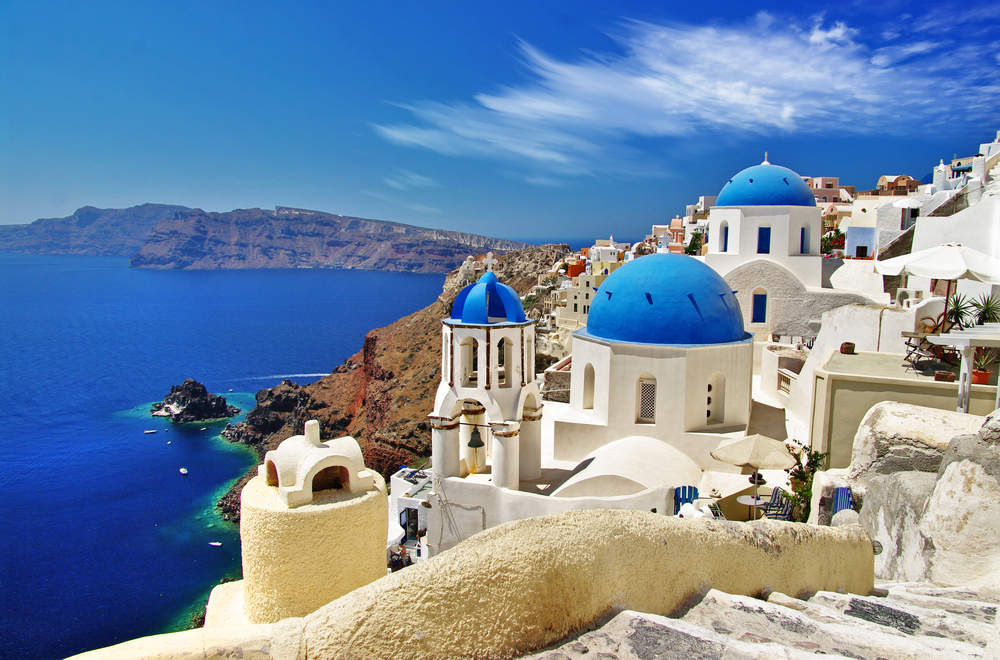Greece is a country in southeastern Europe with thousands of islands throughout the Aegean and Ionian seas. Influential in ancient times, it's often called the cradle of Western civilization. Athens, its capital, retains landmarks including the 5th-century B.C. Acropolis citadel with the Parthenon temple. Greece is also known for its beaches, from the black sands of Santorini to the party resorts of Mykonos. One of the top travel destinations in the world, it is famous for its crisp glistening beaches, postcard-perfect whitewashed, idyllic villages with friendly locals and several ancient UNESCO World Heritage Sites. Enjoy delicious souvlaki, gyros, and pita with loads of olive oil and feta cheese along with a glass of ouzo when you visit the birthplace of famed legends and world-renowned Greek mythology.
Because of its geographical position, Greece was a crossroad for civilizations that have left their traces everywhere. The architecture of the museums and settlements, miniature art, daily life, food and customs all integrate beautifully here. Visitors can come into contact with this multihued and impressive mosaic through trips into historical, cultural, artistic and folkloric traditions scattered around in abundance.
The first monument in Greece to be included on UNESCO’s list was the Temple of Apollo Epicurious in 1986. Since then number of entries on the list has dramatically increased. Today it includes eighteen monuments throughout the country, to name a few, Acropolis, Delphi, Sanctuary of Asklepios, Mount Athos, Rhodes, Meteora, Paleochristian and Byzantine monuments of Thessaloniki, Archeological sites of Mystras, Heraion of Samos, Delos, Aigai, Mycenas, Tiryns and Olympia, Monasteries of Daphni, Hosios Loukas and Nea Moni of Chios and many more.
In the hot summers, social life in Greece tends to be outdoors. In small towns and villages, the tradition of the volta continues, when at sundown much of the population strolls up and down the main street or, on the islands, along the shore. In summer and winter much leisure time is passed in the numerous cafés and coffee shops, both of which have been traditionally a male preserve. It is also not uncommon to find in a single village one coffee shop where the adherents of a particular political party congregate. Television, the Internet, and forms of video entertainment have to some extent undermined these traditional leisure patterns.
Greek cuisine, particularly such sweets as baklava and kataifi, reflect the centuries of Turkish rule. The food in Thessaloníki—in northern Greece and part of the Ottoman Empire until 1912—in particular still reflects a strong Ottoman influence and is a testimony to the massive influx of refugees from Asia Minor in the 1920s. The traditional, healthy diet of Greek peasants in general was based on vegetables, fruit, olives, olive oil, cheese, bread, and seafood, meat being a luxury eaten only on special occasions. With the country’s growing affluence, meat has come to assume a more important place in the Greek diet.
The best time to visit is Greece is spring and early summer (mid-Apr to mid-June) or autumn (Sept to mid-Oct). This way, you'll avoid the summer high season with its high temperatures (heat waves of 100°F/+40 C are routine).




 Happy Customer's
Happy Customer's
